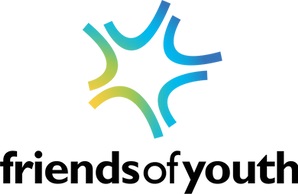Grantee: Friends of Youth
Timeframe: April 2021 – October 2021 | Amount: $15,000
PHPDA Nimble Grant funds will be used for the licensed clinical counselors to become certified in providing evidence-based modalities that will increase the effectiveness of behavioral health treatment, particularly for clients of color.
The project will provide training to staff that will allow clients to access multiple trauma-focused mental health treatment modalities, providing options that are otherwise unavailable to the client demographic. These treatment modalities include:
- Eye Movement Desensitization and Reprocessing (EMDR);
- Dialectical Behavioral Therapy (DBT); and
- Culturally responsive mental healthcare from a global perspective focused on trauma and recovery.
1) EMDR is a psychotherapy treatment designed to alleviate the distress associated with traumatic memories. EMDR enables people to heal from the symptoms and emotional distress resulting from disturbing life experiences, referred to in children as Adverse Childhood Experiences (ACEs). ACEs include physical, sexual, and emotional abuse; physical and emotional neglect; and various household dysfunctions, including witnessing domestic violence or having an incarcerated parent. Research demonstrates that EMDR frequently brings about substantial improvement among trauma patients in short periods of time. Among vulnerable and diverse populations, EMDR has been favored due to its rapidly attained treatment effects that do not involve “a) detailed descriptions of the event, b) direct challenging of beliefs, c) extended exposure, or d) homework.”
2) DBT is a mental health treatment modality, alternative to EMDR that is similarly used to address trauma history. DBT is a skill-based psychotherapy that provides an effective combination of cognitive and behavioral therapies to transform negative thinking patterns and destructive behaviors into positive outcomes. Research demonstrates that, “DBT has been evaluated and found to be effective among individuals from diverse backgrounds in terms of age, gender, sexual orientation, and race/ethnicity” and has specifically been found to be effective in clinical studies conducted among sizeable demographics of American Indian/Alaska Native, Black, Hispanic, and Multiracial patients.
This project will cover the training cost for certifications in Eye Movement Desensitization and Reprocessing (EMDR) for six Mental Health Therapists and Dialectical Behavioral Therapy (DBT) for ten clinical counselors, respectively, at Friends of Youth. This critical training will allow our agency to offer EMDR and DBT to rural, Medicaid-eligible children, youth, and families with low socioeconomic status, high likelihood to experience Adverse Childhood Experiences (ACEs), and increased risk of developing and experiencing mental health problems. These certifications will allow Friends of Youth to offer EMDR and DBT treatment to the 2,061 children, youth, and families annually receiving mental health therapy services through Friends of Youth.
3) To address the healthcare disparity faced by diverse populations mainly immigrant and refugee young people, our project will enroll the Mental Health Therapists primarily serving this demographic into a global mental health program. The Harvard Program in Refugee Trauma and Harvard Medical School Department of Continuing Education collaborated to offer a two-week certificate program, “Global Mental Health: Trauma and Recovery,” providing training for health care practitioners addressing the health and mental health sequelae of trauma.
This project will cover the training cost for certifications in “Global Mental Health: Trauma and Recovery Certificate Program” for four Mental Health Therapists who primarily serve our immigrant and refugee young people.
About Our Grantee
Friends of Youth
Friends of Youth partners with youth and families to provide the relationships, resources, and skills they need to attain personal growth and success. Friends of Youth welcomes, honors, and celebrates clients, colleagues and communities’ diverse identities, histories, knowledges, languages, and cultures. Their organizational values shape the way they work individually and collectively, as they prioritize young people’s belonging and achievement. They work to challenge, alter, and ultimately dismantle interconnected systems of structural and historic oppression. They collaborate with community stakeholders and partners to develop policy and decision-making frameworks that advance racial equity.
